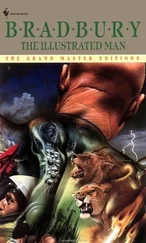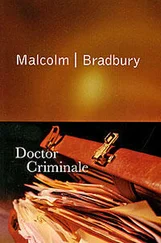Malcolm Bradbury - The History Man
Здесь есть возможность читать онлайн «Malcolm Bradbury - The History Man» весь текст электронной книги совершенно бесплатно (целиком полную версию без сокращений). В некоторых случаях можно слушать аудио, скачать через торрент в формате fb2 и присутствует краткое содержание. Жанр: Современная проза, на английском языке. Описание произведения, (предисловие) а так же отзывы посетителей доступны на портале библиотеки ЛибКат.
- Название:The History Man
- Автор:
- Жанр:
- Год:неизвестен
- ISBN:нет данных
- Рейтинг книги:3 / 5. Голосов: 1
-
Избранное:Добавить в избранное
- Отзывы:
-
Ваша оценка:
- 60
- 1
- 2
- 3
- 4
- 5
The History Man: краткое содержание, описание и аннотация
Предлагаем к чтению аннотацию, описание, краткое содержание или предисловие (зависит от того, что написал сам автор книги «The History Man»). Если вы не нашли необходимую информацию о книге — напишите в комментариях, мы постараемся отыскать её.
The History Man — читать онлайн бесплатно полную книгу (весь текст) целиком
Ниже представлен текст книги, разбитый по страницам. Система сохранения места последней прочитанной страницы, позволяет с удобством читать онлайн бесплатно книгу «The History Man», без необходимости каждый раз заново искать на чём Вы остановились. Поставьте закладку, и сможете в любой момент перейти на страницу, на которой закончили чтение.
Интервал:
Закладка:
He walks along the terrace, with its cracked pavement stones, its scatter of broken glass; the rain soaks his hair, and begins to stipple the leather of his coat. The terrace curves around him; once an exact and elegant half-circle, the curious dentistry of demolition has attacked it, pulling out house after house from the curve as they have become empty. Most of those that still stand are unoccupied, with broken roofs and vacant, part-boarded windows, plastered with posters for political parties, pop groups, transcendental meditators, or rather surreptitiously occupied, for they are visited by a strange, secret, drifting population of transients. But, though there are few residents, the terrace has been metered for parking; the Kirks have to keep their minivan some streets away, in a square up the hill. A police car heehaws on the urban motorway being sliced through the demolition; buses grind below him, on the promenade. An air-force jet flies in off the sea, its line of flight an upward curve that brings it into sudden visibility over the jagged tops of the houses across the terrace from the Kirks' tall, thin house. He turns the corner; he walks up the hill. The long latticed metal of a construction crane swings into his eyeline, dangling a concrete beam. Up the hill he goes, past the remnants of the old order, the scraps of traditional Watermouth falling beneath the claims of the modern city. There are small shops-a newsagent with a window display of The Naked Ape, a greengrocer with a few crates of vegetables standing outside under a leaky canvas awning, a family butcher with a notice saying 'We keep our meat on ice in hot weather'. There are small back-to-back houses, whose doors open directly onto the street; the bulldozers soon will reach them. Higher on the hill grow the new concrete towers. Before he reaches them Howard turns to the left, into a square of small houses, mostly flats and private hotels. His old blue minivan stands in a line of cars beside the kerb, under a sodium streetlamp. He unlocks the driver's door; he gets in; he turns the ignition twice to fire the engine. He drives the van back and forth, to clear the space. Then he drives out of the square, down through the busy traffic of the hill, and back into the terrace.
On the pavement, outside their tall terrace house, set in its broken curve, Barbara is already standing, waiting for him to come. She wears a white, pinch-waist, full-length raincoat; she carries two red canvas bags, Swiss, from Habitat. He leans over to open the passenger door; she reaches into the van to put the bags into the back. 'You must be feeling very good,' she says, getting into the seat beside Howard, 'everything's starting for you, so you're feeling very good.' Howard lets out the clutch; he turns the van, back and forth, in the terrace. 'I'm fine,' says Howard, driving to the end of the terrace, turning up the hill. 'Shouldn't I be?' Barbara pulls on her seatbelt; she says, 'I can tell when you're feeling good because you always want to make me feel bad.' Howard follows the arrows and the directional marks, the lefts, the rights, the no entries, that lead him up the hill and towards the new shopping precinct. 'I don't want you to feel bad,' says Howard. There is a turn to the left, barred by a red arm; it is the entrance to the high multi-storey car park on the edge of the precinct. 'Well, I do feel bad,' says Barbara. Howard makes the turn; he stops the van in front of the arm; he takes a ticket from the automatic machine. 'You know what you need?' he says; the arm rises, and Howard drives forward. 'Yes,' says Barbara, 'I know exactly what I need. A weekend in London.' Howard drives up the ramp into the blank concrete of the place, through the flickers of light and dark, following the wet tyre-tracks. Howard says, 'You need a party.' The van spirals upward through the high, blank building. 'I don't need a party,' says Barbara, 'it's just another sodding domestic chore I have to clear up after.' Driving through the concrete and the metal, Howard sees, on the fifth floor, a space for the van to park; he drives into it. The garage is dark and grey; he pulls on the handbrake. 'You just had a very dull summer,' says Howard, 'now everything's happening again. Come on, let's go and shop.'
The car park is a low, cavernous place, devoid of people, a place for machines only; out through the unwindowed parapet, you can see the town spread out below. The Kirks get out of the van; they walk together, over the oily, roughened floor, to the blank metal door of the lift shaft. Barbara says: 'Your excitement fails to infect me.' Howard presses the button; the lift grinds in the shaft. The doors open; the Kirks get in. There are aerosoled scribbles on the lift walls: 'Agro', 'Boot boys', ' Gary is King'. They stand together and the lift descends. It stops and the Kirks walk out. A long tiled corridor leads towards the precinct; there is human excrement against the walls of the brightlit passage. They come out among the high buildings, into a formal square. The precinct has straight angles; it has won an architectural award. There are long glass facades, the fronts of supermarkets, delicatessens, boutiques, the familiar multiple stores, displaying the economy of abundance; there is a symmetry of tins and toilet rolls in the windows of Sainsbury's; spotlights and shade permute the colour range of sweaters and shirts, dresses and skirts, in the Life Again Boutique. In the open space in the middle are multicoloured paving stones; amid the stones, in some complex yet deducible code, are tiny new trees, fresh-planted, propped by wooden supports. A waterless fountain contains much litter. The Kirks divide their tasks, half to you, half for me. Barbara walks towards the automatic glass doors of Sainsbury's, which slide open mechanically as she approaches them, and close again as she passes inside; Howard goes on down the precinct, to the wine supermarket, which is called Your Wine Seller, and has very special offers at very special prices. He walks inside, under the bright spotlights; he stands under the anti-theft mirrors, and inspects the bottles of wine that have been tossed carelessly together in the wire bins. He goes to the small counter at the back of the store.
The assistant looks at him; he is young, with a beard, and wears a maroon jacket with a yellow Smile badge on the lapel; this leaves his face free to be very surly. Howard sees with gratification the indignation of the employed and oppressed, the token resistance. He gives his order, for five dozen litre bottles of cheap red wine; he waits while the man goes into the storeroom, and wheels out, on a wire trolley, a stack of big cardboard cases. He asks for the loan of twelve dozen glasses; 'We don't lend them,' says the assistant. Howard delivers himself to the task of persuasion; he emanates concern, he invites the man to the party; he gets the glasses. The assistant stacks the boxes of glasses on another trolley. Howard takes the first trolley, and wheels it, across the open space of the precinct, over the coloured paving stones, past the empty fountain, through the tiled passage, to the lift; he ascends in the lift, and unpacks the cases into the back of the minivan. He returns with the empty trolley; he takes the second trolley of glasses up into the car park, and then back to the store. When he reaches the van again, Barbara has still not returned. He stands by the van, car keys hanging from one finger, in the empty, cavernous place, devoid of people, amid the shuttered concrete planes, the rough surfaces, the angular lines of air and space, light and darkness. He stares out, over the unwindowed parapet, at the topography of the town. There are torn spaces below, where the motorway and the new housing projects are being constructed; beyond are the rising shells of hotels, office blocks, flats. There are two Watermouths; the unreal holiday town around the harbour and the Norman castle, with luxury flats and expensive bars, gift shops and pinkwashed Georgian homes; and a real town of urban blight and renewal, social tensions, discrimination, landlord and tenant battles, where the Kirks live. To one side, he can see the blocks of luxury flats, complete but half-empty, with convenience kitchens and wall-to-wall carpeting and balconies pointed at the horizon; to the other side, on the hill, stand the towers of the high-rise council flats, superficially similar, stacked, like a social workers' handbook, with separated wives, unmarried mothers, latchkey children. It is a topography of the mind; and his mind makes an intellectual contrast out of it, an image of conflict and opposition. He stares down on the town; the keys dangle; he populates chaos, orders disorder, senses strain and change.
Читать дальшеИнтервал:
Закладка:
Похожие книги на «The History Man»
Представляем Вашему вниманию похожие книги на «The History Man» списком для выбора. Мы отобрали схожую по названию и смыслу литературу в надежде предоставить читателям больше вариантов отыскать новые, интересные, ещё непрочитанные произведения.
Обсуждение, отзывы о книге «The History Man» и просто собственные мнения читателей. Оставьте ваши комментарии, напишите, что Вы думаете о произведении, его смысле или главных героях. Укажите что конкретно понравилось, а что нет, и почему Вы так считаете.











